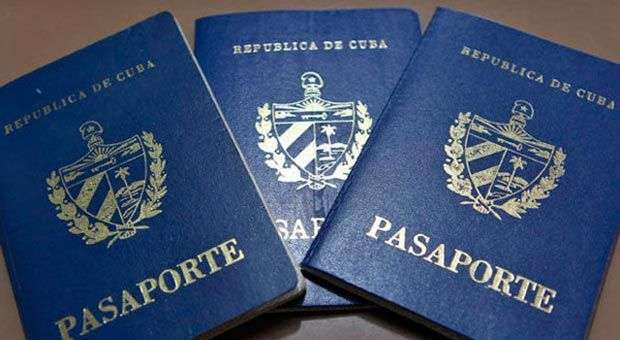A banking blow that can paralyze the Cuba Interests Section in Washington, threatens to frustrate hundreds of thousands of Cuban immigrants who plan to celebrate with their families in Cuba Christmas and New Year’s Eve. This is another result of the blockade imposed on the island and probably a trip to the efforts of the administration to update its policy, as has been recently expressed by President Obama and Secretary of State John Kerry.
In the United States virtually any activity involving receipts and payments cannot be performed outside the banks. By denying the U.S. Interests Section in Cuba access to these services, they are virtually forced to close. Without operating bank accounts, the Cuban consulate cannot issue visas and passports, but they cannot also pay salaries and rent, electricity, water, electricity, taxes and other necessary expenses.
The measure affects all who need to travel to Cuba and require passports or visas, relentlessly hits the emigrants who number about 450 000 per year traveling to the island for family reasons and, incidentally, ruins the work of some 300 entities that sell or manage such trips, affects companies that lease their aircraft for charter flights, placed against the wall business packages and hurts the sales of the stores where Cubans acquire items that travelers often take to their families.
The chain also has links in Cuba where it harms businesses and individuals that in increasingly larger numbers and activities provide travelers with Cubans accommodation, transport, party goods, food and other needs associated with visits that have enormous relevance for family and Cuban society. At the same time the Cuban state loses revenue that rightfully obtained by these concepts.
Additionally, due to the absence of diplomatic, political, commercial, financial and even cultural relations, despite the highly touted “people-to-people relationship” the U.S. claims to promote, virtually the only content of the work of the sections of interest Cuba in Washington and its American counterpart in Havana is the consular activity. Although it seems unlikely, a measure of reciprocity in Cuba is not impossible. The policy of the other has not been discontinued. Who profits from such a mess?
Although it is not a measure to which the State Department sympathizes, however, is a reaction of the banks resulting from government policies. Financial institutions are finding it increasingly difficult to manage the accounts of a country included in increasingly dark and crazy lists, and whose economic transactions Treasury closely monitors.
No American bank would want to suffer what happened to a half dozen banks from 2009 to date that have paid fines of more than 2 billion dollars imposed by the Treasury Department for conducting financial transactions with Cuba. Maybe it’s a good time for the Obama administration, rather than find a bank willing to operate with Cuba, find a more pragmatic, sensible and morally sustainable policy.
In any case the note issued by Cuba is clear and follows the letter of the agreement: “The U.S. government should ensure compliance with the Vienna Convention on Diplomatic Relations and the Vienna Convention on Consular Relations …”
Actually, this is not anything new, but a recurring phenomenon due to higher causes, especially the embargo policy, and periodically affects Cubans living in the United States and their families in Cuba, mainly with regard to the travel and family visits that are a kind of hostage to further conflicts.
However, because this isn’t a case brought by the U.S. government, or an act of timely hostility, to benefit Cuban immigrants and their families who are waiting, the matter could be treated as an administrative matter, an approach that allows them to consider remedial options, such as allowing for once that those with expired passport or disabled have them solved in Havana, and those who do not possess it exceptionally be authorized to enter Cuba using their American passport and apply here for the Cuban one.
While it does not correspond to Cuba to seek solution to a problem that it has not created or have to provide a solution that has to be pursued by the U.S., it is also about Cubans that in both shores share feelings and family goals. For them and for their happiness, it is well worth an exception.
By: Jorge Gómez Barata










